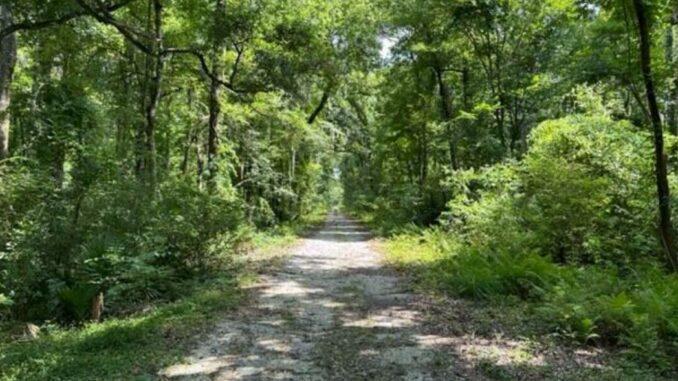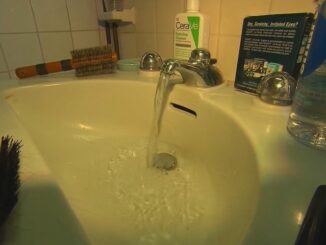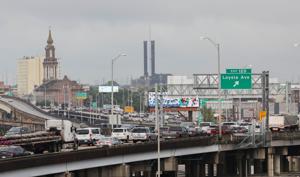
Last year, after a strangely specific amendment was added to the state budget that gave the Louisiana Department of Wildlife and Fisheries $9 million to buy a huge piece of swampland, then-Secretary Jack Montoucet ordered an appraisal on the property.
It came back saying the 2,400-acre property was worth $8.6 million — a figure based on the assumption it would eventually be used as a “mitigation bank,” a property companies can buy shares in to offset damage to wetlands elsewhere. Meanwhile, the LDWF was to hand the property over to the University of Louisiana-Lafayette, which wanted it for carbon capture and other research.
Montoucet signed a purchase agreement for that amount.
But Jay Dardenne, Gov. John Bel Edwards’ budget chief, said he had concerns about the price because the property was not certified as a mitigation bank. He told Montoucet to get a new appraisal in April, just before the LDWF secretary was implicated in a bribery scheme and resigned from his post. The deal is now on hold.
The new appraisal, released Friday, pegs the property’s value at $4.9 million, just over half the old figure. It wasn’t immediately clear if the sellers would accept the new price, which was not built on the assumption the property would be used as a mitigation bank.
The saga puts Montoucet at the center of another unusual deal involving state money, and raises new questions about state funds destined for companies linked to Alexandria businessman Jeff Richardson, one of the owners of Bayou Chevreuil Land Co., which purchased the swampland in 2003. Richardson, along with Lafayette businessman Leonard Franques — who like Montoucet has been implicated but not charged in the bribery scandal — were part of a group that landed another oddly specific appropriation last year for a rehab clinic in Lafayette. That one had a price tag of $3 million.
Richardson didn’t respond to messages seeking comment. Dewitt previously told the Louisiana Illuminator that Richardson was handling the deal’s logistics.
“This was a very curious arrangement from the get-go,” Dardenne said. “When we found out about the flawed appraisal, it became, ‘We’re not going forward with this until we get a valid appraisal of the property’s worth.’”
Jack Montoucet, the former secretary of the Louisiana Department of Wildlife and Fisheries
Dardenne said the new appraisal is based in reality. “The other one was not realistic at all, because it was based on false premises,” he said — primarily the notion that the property was to be used as a mitigation bank. He added that “everybody’s eyebrows were raised” at the price St. James Parish paid for nearby swampland sold by the same company. Once Dardenne learned the property wasn’t approved as a mitigation bank, he ordered a new appraisal.
The new appraisal, by Murphy Appraisal Services, says the idea that the land could be used as a mitigation bank is “highly speculative.” It notes that the owner previously tried to turn the property into a mitigation bank but withdrew the application after “unfavorable terms” were offered by the U.S. Army Corps of Engineers.
The appraisal also said there are few wetlands bought for a premium price based on possible future use as a mitigation bank, suggesting investors and buyers should be “wary of the uncertainties” surrounding mitigation bank approval processes.
The land deal is unusual in several respects.
The property, a low-lying wooded swamp in St. James and Lafourche parishes, is owned by a group that includes former House Speaker Charlie DeWitt, an Alexandria Democrat, the Louisiana Illuminator first reported.
A strange late addition to the state budget specifically named Bayou Chevreuil Land Co. as the recipient of up to $9 million in exchange for the title to the property.
And while the buyer was to be the LDWF, overseen by Montoucet, the real owner would be the University of Louisiana-Lafayette. Officials involved in the deal said LDWF would buy the property because they had experience buying similar land.
Ramesh Kolluru, vice president for research, innovation and economic development at UL, said Richardson approached him with the idea. Kolluru said he agreed it would benefit the university to own a piece of land where lab studies could be translated into the real world, studying things like carbon capture and sequestration, as well as other puzzles, like which species of grass absorbs the most carbon dioxide.
The state, under Democratic Gov. John Bel Edwards and a Republican-dominated Legislature, has enthusiastically embraced carbon capture and sequestration, the process of capturing carbon dioxide from polluting plants and piping it deep underground. Industry groups have lobbied to make carbon capture easier here, in part to take advantage of lucrative federal tax credits authorized by President Joe Biden’s administration.
Allen Angers, an appraiser in Lafayette, conducted the initial appraisal that valued the property at $8.6 million.
Kolluru had instructed him to assume the parcel would be used for mitigation banking, citing a letter that a wetland scientist sent to Richardson and a partner at their request saying it had the potential to “provide compensatory mitigation,” emails show.
The resulting appraisal said the property, which is mainly used for hunting and fishing and which floods regularly, was worth $3,500 an acre. The value rested partly on the fact that between 2013 and 2019, St. James Parish government had purchased several pieces of the same swamp from the same company — Bayou Chevreuil Land Co. — for $4,200 an acre.
It’s unclear why St. James paid the price it did for the land. Richard Webre, director of operations at St. James Parish, said the land deals were done by the previous administration because the parish was doing drainage projects and needed wetlands mitigation areas in the same watershed.
He said the parish would save money in the long run by owning the land, but acknowledged the parish has not yet gotten it certified as a mitigation bank. He said the parish is working with an engineer to turn it into one.
“It’s financially advantageous if you can own your own wetlands mitigation bank,” he said.
According to the new appraisal, the West Jefferson Levee District bought a 1,300-acre piece of property for use as a mitigation bank in 2017. It paid $1,027 an acre, less than a fourth of the price St. James paid.
Angers said he didn’t know whether the Bayou Chevreuil property ever met the actual standard for being a mitigation bank, but said he was instructed to assume it would be used that way.
He also said valuing such swamp land wouldn’t be that difficult if it weren’t for “this mitigation crap.”
“That’s the only part that confused everything,” he said.
State Sen. Jay Luneau, an Alexandria Democrat, said he was approached by several people —but not Montoucet — to put the $9 million amendment into last year’s budget. He said he stands by the deal, in part because both LSU and ULL were interested in buying the property at certain points. He said LSU used to conduct research on the site.
Luneau said he puts “lots of amendments in lots of bills” and complained that reporting about the property had made it “sound like there was some fix in to help somebody on this land purchase.”
Luneau said the state is protected by the appraisal process, which in his view means the state is not going to overpay.





Leave a Reply